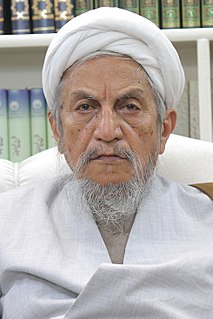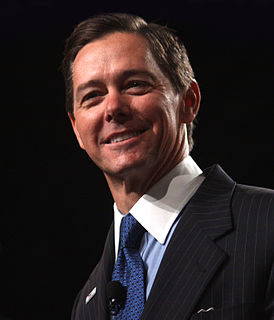A Quote by James Luther Adams
We are not a religious tradition with a creed, but a religious movement that has always wedded social justice work to theology
Related Quotes
Any political movement directed against any body of our fellow-citizens because of their religious creed is a grave offense against American principles and American institutions. It is a wicked thing either to support or oppose a man because of the creed he possesses. . . . Such a movement directly contravenes the spirit of the Constitution itself.
Religious ideas about good and evil tend to focus on how to achieve well-being in the next life, and this makes them terrible guides to securing it in this one. Of course, there are a few gems to be found in every religious tradition, but insofar as these precepts are wise and useful they are not, in principle, religious.
Every religious tradition on which we draw has a reverence for life. We are a part of an intricate web of life. Every tradition on which we draw teaches that the ultimate expression of our spirituality is our action. Deep spirituality leads to action in the world. A deep reverence for life, love of nature's complex beauty and sense of intimate connection with the cosmos leads inevitably to a commitment to work for environmental and social justice.
Everyone talks about religious liberty, but no one believes it. So let us be blunt about it: we must use the doctrine of religious liberty to gain independence for Christian schools until we train up a generation of people who know that there is no religious neutrality, no neutral law, no neutral education, and no neutral civil government. Then they will get busy in constructing a Bible-based social, political, and religious order which finally denies the religious liberty of the enemies of God.
I was a young woman who had grown up in the mountains of Montana as a Protestant Methodist in a pretty good social gospel tradition. I became fascinated with the religious lives of others who seemed also to be very religious, yet in ways that were quite different from my own. That fascination led to relationships, in India and elsewhere, with families of Hindus, of Muslims, of Sikhs, and a lot of study.
The leaders of the Pahlavi regime, in an attempt to forestall the rising tide of the Islamic revolutionary movement, were hard at work to cast doubt on the question of the Imam Khomeini's position as a Marja'a (a top religious authority) and in this way, undermine public faith in his academic, political and religious competence.
The capacity for the accomplishment of religious virtuosos the "intellectual sacrifice" is the decisive characteristic of the positively religious man. That this is so is shown by the fact that in spite of (or rather in consequence) of theology (which unveils it) the tension between the value-spheres of "science" and the sphere of "the holy" is unbridgeable.
I think the connection between poetry and theology, which is profound in Western tradition - there is a great deal of wonderful religious poetry - both poetry and theology push conventional definitions and explore perceptions that might be ignored or passed off as conventional, but when they are pressed yield much larger meanings, seem to be part of a much larger system of reality.
The zealous disdain for religion in American jurisprudence amounts to intolerance. Keith Fournier of the American Center for Law and Justice concludes that 'the ones not being tolerated are religious people who dare make any kind of religious reference or take any kind of religious posture outside the private arena.
No, I'm not religious, I'm sorry to say. But I was once and shall be again. There is no time now to be religious." "No time. Does it need time to be religious?" "Oh, yes. To be religious you must have time and, even more, independence of time. You can't be religious in earnest and at the same time live in actual things and still take them seriously, time and money and the Odéon Bar and all that.
































